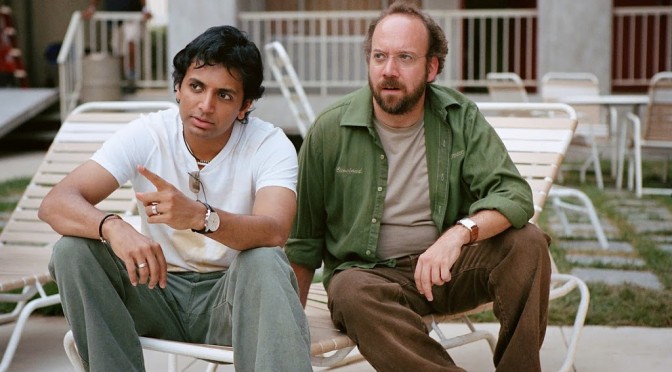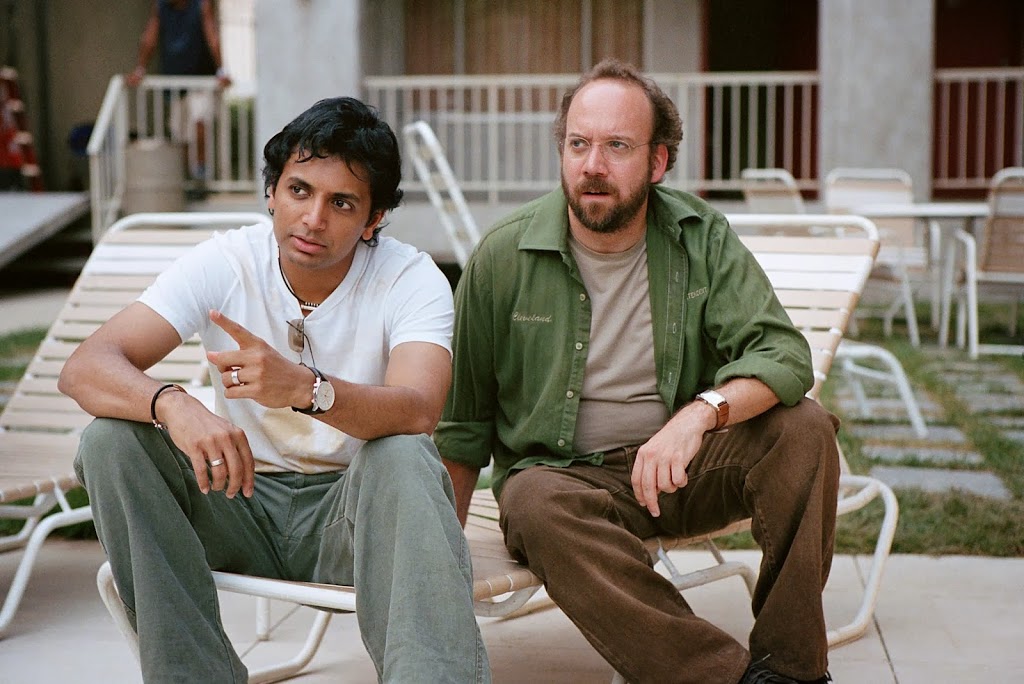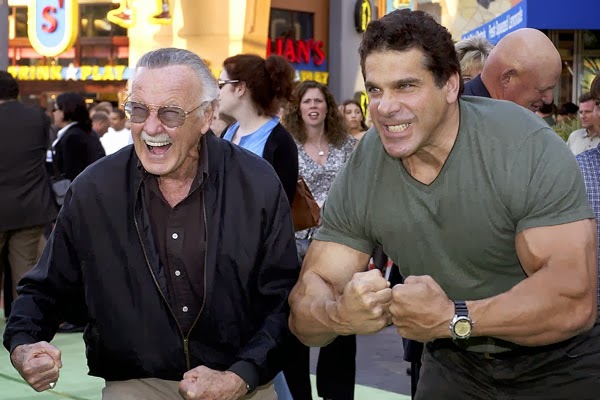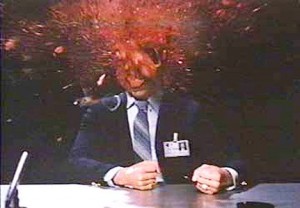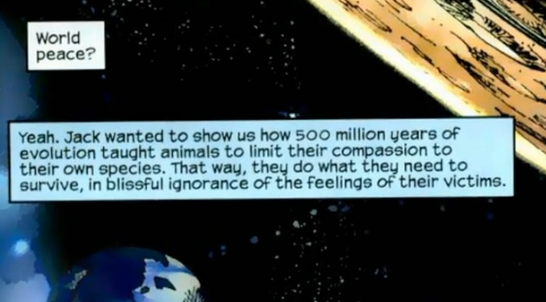As I said on Monday in a lengthy introduction: it’s impossible for an author to remove themselves completely from their own work. No matter what you do, you’re going to bleed into it and people are going to be able to see what you think and feel about subjects through how you portray them in the things you’ve written.
Sometimes it can be incredibly subtle, left up for interpretation throughout the ages. But for others it can be painfully obvious. At this point we reach a stage where someone does what we call “soap boxing” or, worse, the dreaded Mary Sue insertion. As much as you want people to know you through your writing, you also want to let them have their own experience and come to their own conclusions. A good writer will have a message and a theme in their work, a great writer will guide the reader into discovering it for themselves.
So how does someone stay true to themselves without overwhelming the work and bogging it down with their own personality?
1. Don’t insert yourself
This happens often in almost all works, especially when someone has been successful for a while. There’s this general sense that once you’ve done something successfully enough for long enough that it’s suddenly okay to put yourself in the work and pat yourself on the back in public. Hell, for some creators they even come to the conclusion that this is an Easter Egg to “reward” the true fans. However, this only works when someone actually becomes excited about what they have found. Here’s a couple examples to show what I mean.
This is M. Night Shyamalan, long time film-maker and frequent abuser of adding a twist in the last act. He has actually put himself in every single film he has ever made and people tolerated it for some time despite the fact that it wasn’t really adding anything to the movie.
However, when it came to Lady In The Water, Shyamalan decided that he needed a bigger role in the plot. I’m not even going to bother with trying to recap it for you, so I’m just going to share a portion of the plot summary:
“One evening, Cleveland Heep (Paul Giamatti), who became a handyman at a Philadelphiaapartment complex after his family was murdered, discovers Story (Bryce Dallas Howard), a naiad-like character (called a Narf) from the Blue World, in his building’s pool, immediately rescuing her from an attack by a “Scrunt”,[5]a grass-covered lupine that lies preternaturally flat.
Story is here to find a specific writer whose book will better humanity’s future. After questioning residents Farber (Bob Balaban), Bell (Mary Beth Hurt), Dury (Jeffrey Wright), and five nameless smokers, Heep discovers the author, Vick Ran (M. Night Shyamalan), who is writing The Cookbook, containing views and ideas so significant they will inspire a future President, a great Midwestern orator, to greatly change the world for the better. Ran meeting Story eliminates his fear and sharpens his inner voice, but he learns he will be assassinated due to the controversial nature of his ideas.”
That sensation you’re feeling right now are your eyes trying to roll all the way back into your skull and the growing need to punch M. Night in the face. I don’t even think I have to explain why that was a shitty move to you guys because everyone understands on some instinctual level that was just fucking annoying. On the other hand…
This is Stan Lee. Stan has made cameos in so many movies that people actually miss him when he isn’t making a cameo in something he had a part in creating. In fact, some really fascinating theories have been proposed about the nature of the Stan Lee cameo that most of us like to consider head canon once we discover it.
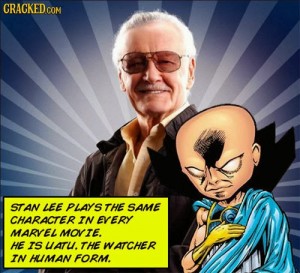
So what’s the difference? One of them earned it. You see, Stan never inserted himself into any of these movies on his own. He was asked to be in these movies by the people who were making them because they wanted to show respect to the man who had spent his life creating wonderful characters. If someone else wants to include you in their work as a nod to you, it’s an honor. If you try to include yourself in your work, it’s literally being full of yourself.
2.Don’t make your viewpoint universally right
The saying often goes “there are two kinds of people in the world”, but the truth is, there are really three. There are the people who agree with you, the people who disagree with you, and the people who think there’s some validity in both viewpoints. When you project your views and opinions into your work, you have to remember those other two groups exist as well.
Now they say that you can’t please everyone, and that’s completely true. But if you write your characters and their opinions (which you share) as being universally right, you’re actually only going to win over one part of the audience – the people you didn’t need to win over in the first place. The fact of the matter is, by portraying your viewpoint as an absolute, you’re going to ward off the people who could have possibly agreed with you by, once again, being full of yourself.
You should never be so convinced of your own moral superiority that you aren’t willing to give the other side a chance to talk. All of those people who you think are crazy assholes, in return, think that you’re the crazy asshole. And those people in the middle who could be swayed either direction? They’re going to look at who has the most reasonable argument. So when you start to portray the other side as absolutely wrong, they’re going to know on an instinctual level that no one is ever absolutely wrong, so obviously you’re being unfair and don’t deserve their attention.
One way you can avoid this pitfall is to take time to consider it from the other side’s point of view. Even if that side still appears wrong at that level, you can still cite their arguments and give them something of a voice to let people decide for themselves. Even if your guys win in the end, they still weren’t the only voice allowed and you didn’t actually just portray these other people in a completely biased fashion.
Another option is to make sure that your character, and their viewpoints, aren’t always depicted in a holier than thou fashion. As an example, in my novels I frequently have my protagonist make judgments on people that he later has to question. There are times when someone makes a point that he’s forced to accept. There are even times when the things he is firmly confident on become questionable to him. The general idea was that he is not always right or doesn’t always know what to do… which leads to another point.
3. Explore your own questions
I’m going to blow your mind here: You don’t know everything.
Okay, you recover from that? Because the next tip here is that you shouldn’t act like you do. Sometimes you’re going to have your characters or the story run into a question that you, personally, don’t have the answer to. But that’s just fine, because sometimes it’s just as interesting, sometimes even more interesting, to see you work through that.
Remember the three types of people earlier and consider that those are also the voices that go through your head when you’re thinking on something important. There is the voice that believes one thing, the voice that believes the other, and the third that thinks there’s validity both ways. And if you were to give each of those voices an opinion of their own, you can take your lack of knowing the answer and turn it into a conversation that people would want to hear.
Mind you, make sure that the question is interesting, that your views on it are genuine enough to explore and that the answer isn’t out there already. One of the most egregious examples that springs to mind of failing at this is from a comic book by the title of Marville that happened to delve into the origins of things such as war and violence. It was a horribly written comic and so loathed that it was difficult for me to even find material from it to show you.
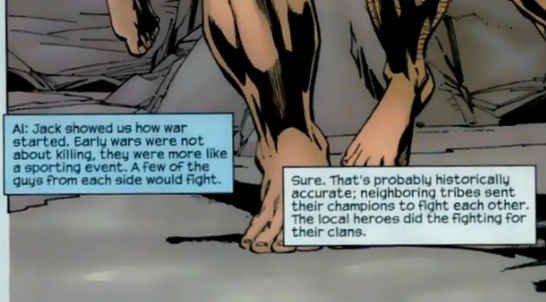
Besides the fact their own version of things made no sense, it was the answer to a question that no one ever needed to ask. Wars happen because humanity has a tendency to respond to stress violently. This is just a fact of human nature. But when you try to say it was a corruption of a less violent and more civil approach, you’re basically just preaching from atop a very shaky soapbox.
4. Just be humble (for the first couple decades)
There’s one general theme running through all of these. The key part of making sure that you can be part of your work without making it unbearable is just by being humble. You are not the end all, be all of authors and you will not be even in the top ten for at least a few decades. You may have your star shine bright early on, but a bright star also has the potential to burn out a hell of a lot faster.
When you look at any good, credible author, especially the great ones, you’ll find all of them have a streak of humility that people on the outside often see as disingenuous. After all, how could someone so successful feel like they haven’t earned it? Well, frankly, it was because they felt that way that they became so successful in the first place. Eventually an ego may form, and for a lot of them, this is the point where they start to decline. But for others, it’s just the time when they’ve realized that they’ve hit a point in their career where all that’s left is to have fun with where they are and soak in the things they worked so hard for.
Stan Lee is a perfect example of this. As a man in his very golden years (91), Stan has taken to the philosophy of not giving a shit what people think about him. Also, he’s become a well-known and quite blatant self-promoter in the last few decades of his life. Why? Because he earned that right, damn it.
Sure, he may refer to himself as the Generalissimo and he may have joked that poor sales figures on some Marvel movies may be related to a lack of a cameo from him, but that man is having fun with life while still recognizing the great honor it all is. No one is quite sure at what point Stan’s ego mutated into the thing it is today, but most of us have a pretty good idea that it happened about the point he realized he could retire and still have people ask for his autograph decades later.

But until you reach that point where you can look back on life and see that you earned your place in the world, keep the ego down to a minimum. Only a select few have reached such a max level, and when they do, they’re going to be remembered for their works regardless. After all…
Look at how many characters Stan had to create to reach it.
(Maybe someday I’ll have enough author cred to be a cameo. Until then, buy my books so I can afford my favorite thing… food 🙂 )


